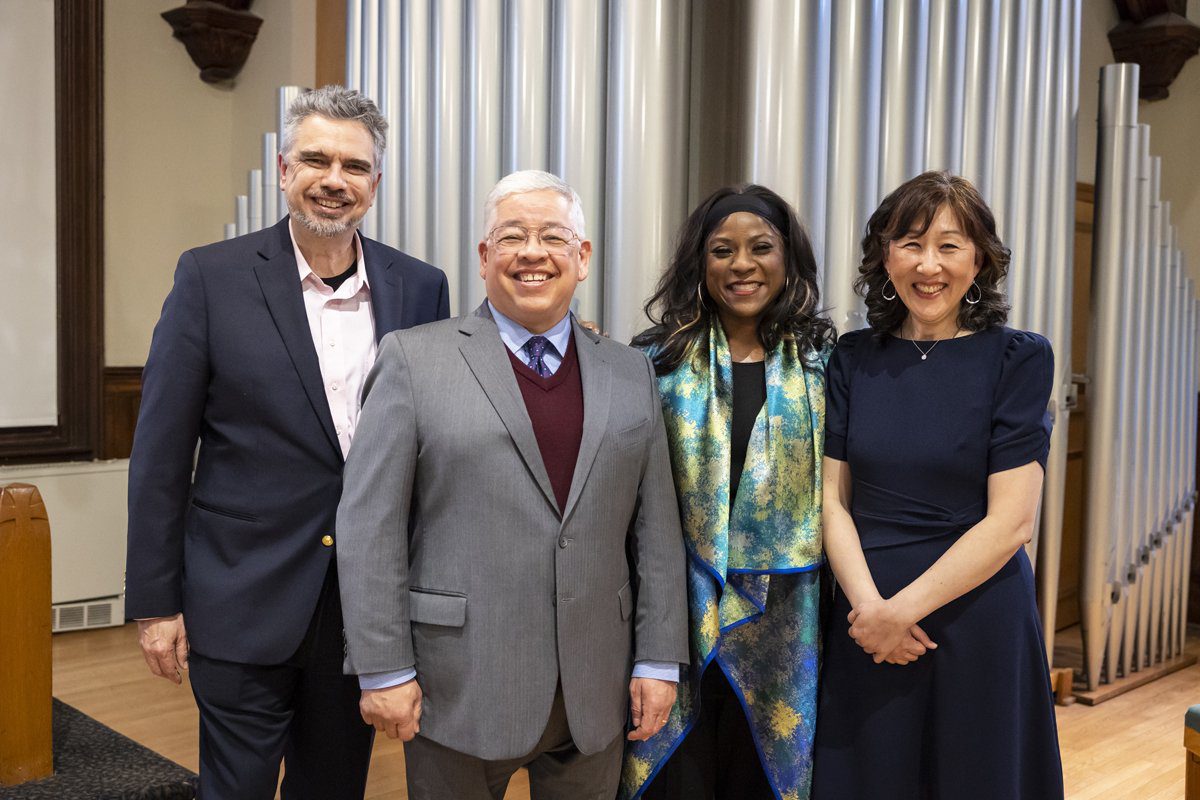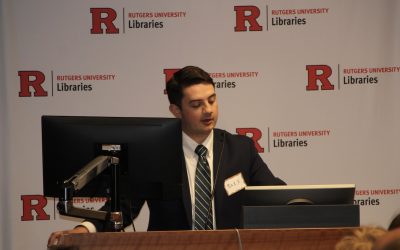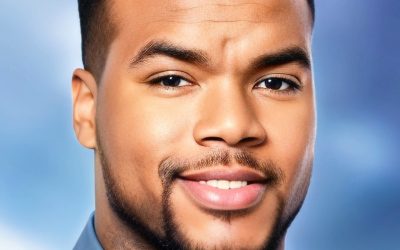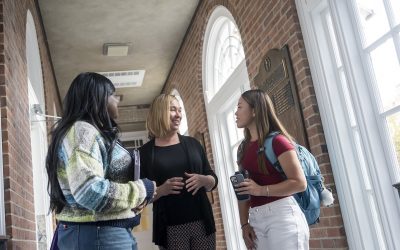Kicking-off a two-day celebration surrounding the Installation of Dean Edwin David Aponte
April 2023 – Drew Theological School kicked-off a two-day celebration of the Installation of the Rev. Dr. Edwin David Aponte as the 14th Dean of the Theological School with “Draw the Circle Wide: A Panel Discussion on Racial Justice and Restorative Work.”
Enlarge

Together with Aponte, the panelists included renowned theologians and scholars Stacey Floyd-Thomas, E. Rhodes and Leona B. Carpenter Associate Professor of Ethics & Society, endowed chair at Vanderbilt University Divinity School; Miguel A. De La Torre, professor of social ethics & Latinx studies at Iliff School of Theology; and Grace Ji-Sun Kim, professor of theology at Earlham School of Religion.
The hybrid discussion, moderated by Althea Spencer Miller, assistant professor of New Testament at Drew, unfolded a rich conversation on the learned experiences surrounding social justice, faith, and hope. “This panel is right on the edge of our aspirations at a pivotal time in the Theological School as we seek to understand and imagine what it means to decenter Eurocentrism curricularly, institutionally, structurally, pedagogically, and epistemologically,” she said as she framed the conversation.
“I find myself in a tremendous struggle,” said De La Torre when asked what comes to mind when thinking about decentering Eurocentrism. “I wonder if Christianity itself is part of the problem. Christianity is so corrupted by the colonial process, can we really decenter Eurocentrism while holding onto Christianity?”
“Christianity is a problem because of the long history of whiteness,” said Kim. “Once we understand the spirit is present within us, then this lived theology where people have different religions syncretizing is not a problem.”
“I admire Drew because you are so diverse—putting anti-racism at the forefront,” continued Kim. “When you work in theology, everything is intersectional. Our work on all of this is our lived theology.”
“While some people might believe in the white Christ, it’s the Black Jesus I hold onto,” said Floyd-Thomas. “If Covid has taught us anything, it’s that work isn’t where you go, it’s what you do. To live is a sacrament, to live is to do divine work.”
“To know Edwin David Aponte is to know someone who is always drawing the circle wide,” she said. “We need the transformative justice that he has brought in the wide girth of his service and his ministry. We need to make sure that what we preach becomes policy and what we individually experience changes the structure of our communities.”
“In trying to decentralize Eurocentrism, the importance of paying attention to lived religion—what people actually do in their daily lives beyond what the official establishment has to say—is one place where we have the examples and inspirations of what can be done,” said Aponte.
“In decentralizing Eurocentrism, as we encounter more and more lived faith outside of Europe with communities that have already begun how to figure out how to decenter Eurocentrism—let’s ask and learn from them,” continued Aponte. “We fall into a trap when we think that we need to fix this on our own. We need to humble ourselves, let’s ask them.”
The conversation turned to hope, and what hope means to the panelists.
“I am deeply hopeless,” said De La Torre, referring to social injustices and the climate crisis. “I choose to believe in a God that may or may not exist. I fight for justice because it defines the faith I claim to have, but more importantly, it defines my very humanity. What matters is am I faithful to what I say I believe in. In the midst of the hopelessness, it has been tremendously liberating because I am no longer the savior trying to fix things.”
“I live with so much hope that I can try to change so much of the wrong in this society,” said Kim. “For me, hope is not this optimistic thinking, it is a push towards working for social justice.”
“Hope makes you push past the hurt,” said Floyd-Thomas.
The event concluded with a Q&A session with the live audience.




